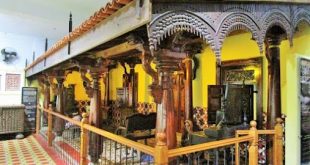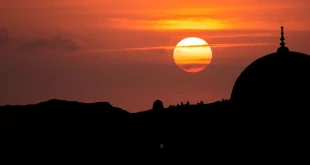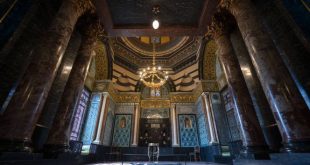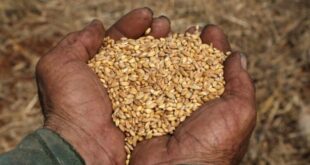 This article should be read contextually with all previous parts. . It is not my objective to make any derogatory criticism of any community or any religion. An attempt has been made here to illustrate how Sinhalese people have been sympathetic and companionate towards all other religious groups in the past. Though Portuguese and Hindu invaders from South India try to destroy cultural heritage of Sinhalese Buddhist people during the colonial and pre-colonial periods, Sinhalese kings offered unconditional supports and help for all other religious groups such as Christian, Hindi and Muslims people. I shall try to illustrate this point with historical evidence to show what BBS doing today is contrary to their cultural and religious history and teachings.
This article should be read contextually with all previous parts. . It is not my objective to make any derogatory criticism of any community or any religion. An attempt has been made here to illustrate how Sinhalese people have been sympathetic and companionate towards all other religious groups in the past. Though Portuguese and Hindu invaders from South India try to destroy cultural heritage of Sinhalese Buddhist people during the colonial and pre-colonial periods, Sinhalese kings offered unconditional supports and help for all other religious groups such as Christian, Hindi and Muslims people. I shall try to illustrate this point with historical evidence to show what BBS doing today is contrary to their cultural and religious history and teachings.
I shall make some reference to Buddhist texts to justify this postulate. It is my humble opinion that in the name of religion and culture BBS is trying to tarnish good name of Sinhalese Buddhist people across the country and indeed, attitudes, behaviours and mindsets of BBS are against very teaching of Lord Buddha. I shall try to gauge and measure peaceful and companionate attitudes of Sinhalese Buddhist communities in historical perspectives. I shall explore some historical facts to illustrate the inherent nature of peace and harmony in the history of Sinhalese people in this country.
Recent times BBS argues that Buddhist culture and traditions have been destroyed by Muslims in this country. This is an unfounded argument. I would like to say that BBS should read Ceylon history well to understand who indeed destroyed pristine Buddhist culture and Sinhalese way of life. Sri Lankan historians know well what happened during the colonial period. It was a historical fact that Muslim people settled in different part of Kandyan kingdom. It was done with the invitation and favour of kaniyan kings. It was reported by Robert Knox that Kings and charitable Sinhalese people donated land to Muslim people to live (Dewaraja p115). Even some mosques were built in the donated lands by kings those days. It was reported that some Buddhist temples fully supported Muslim religious practices and even donated lands to build mosques in the promises of temples. Moreover, they allocated some allotments of land for the day to day maintenance of Muslim priest (Dewaraja. P.113).
This was a real teaching of Buddha who advocated religious tolerance, communal harmony and peace among communities. Nothing but this teaching encouraged the Kings and Sinhalese to donate Muslims with these lands. This would not have happened had there was no amity between Sinhalese and Muslim those days and It would not be wrong to argue that Islamic traditions and rituals were fully protected by Sinhalese kings and Sinhalese people those days. The above mentioned historical account testifies such postulate. Thus, Muslim community in Sri Lankan had been an integral part of Sri Lankan community and they never challenged the Sinhalese or their way of life. In contrary to this harmonious attitude we should look at what happened to Sinhalese people and Buddhist culture during the Portuguese colonization periods.
A cursory examination of some historical facts about the introduction of Catholicism into Ceylon during the Portuguese colonization would reveal how and in what ways Buddhist culture, religion and way of life were destroyed by Portuguese colonial power. Portuguese arrival was regarded as the Dark Age in Ceylon history. They did great damage to Sinhalese culture and tradition than any one else. Emerson Tennent records Portuguese arrival in Ceylon in these words. “There is no page in the story of European colonization more gloomy and repulsive than that which recounts the proceedings of the Portuguese in Ceylon…….. They appeared in the Indian seas in the three fold character of merchants, missionaries and pirates. Their ostensible motto was amity, commerce and religion. Their expeditions consisted of soldiers as well as adventurers and included friars and chaplain majors. Their instructions were to begin by preaching but, that failing to proceed to the decision of the sword” ( Tennakoon. Vimalanqnda. P .xxiv)
Portuguese invasion of Ceylon was vividly described by Malalasekera in his book (The Pali Literature in Ceylon)
“Every stage of their progress was marked by rapacity, bigotry, cruelty and inhumanity unparalleled in the annals of any other European colonial power. Their ferocity and their utter indifference to all suffering increased with the success of their army, their inhuman barbarities were accompanied by callousness which knew no distinction between man, women and child, no feeling of compassion was strong enough to stay their savage hands in their fell work. To terrify their subjects and bring home to them the might of the Portuguese Power, they committed atrocities which had they not been found recorded in the decades of their friendly historians, seems too revolting to be true. Babies were spitted on the soldiers’ pikes and held up up that their parents might hear the young cocks crow. Sometimes they were compelled to witness the pitiful sight before they themselves were tortured to death. Men were thrown over bridges for the amusement of the troops to feed the crocodiles in the river, which eventually grew so tame that at whistle they would raise their heads above the water in anticipation of the welcome fest.” (Malalasekera: quoted by Tennakoon. Vimalananda. P .xxvi.)
Prof Vimalananda notes that Portuguese method of converting Sinhalese people had been awful and brutal methods. Innocent Sinhalese people were converted under duress and compulsion. It had been their principle to “begin by preaching, but that failing proceed to the decision of the sword”. Because of this forceful compulsion and coercion he argues that “the Sinhalese Buddhist of the maritime province very cheerfully submitted to the cruel atrocities of Roman Catholic missionaries” (P. xxvi). Prof. Vimalananda compares and contrasts the differences between the invasion of South Indian Tamil and Portuguese Roman Catholics.
“In the complete destruction of the city of Anuradhapura or the sack of Polonnaruwa, the last national capital of the Sinhalese people, the enemy, however, never attempted to convert the Buddhist of Ceylon to the Hindu faith. But the new invader from the West not only destroyed the places of worship of Buddhists but forcefully converted many people to the Roman Catholic faith…. Three agencies fo the Roman Catholic Church directed operations against the helpless Buddhists: those three agencies were: 1) The Roman Catholic Emperor of Portugal 2) His Viceroy at Goa 3) The Roman Catholic priests in Ceylon. They were all united in the effort completely to destroy Buddhism in our country…. As the Portuguese were in possession of Sea coast of Ceylon the Buddhists could not communicate with any sympatric power outside Ceylon for the help at that hour. Thus, the Roman Catholic Church in Ceylon embarked upon a campaign of destruction and bloodshed, unopposed by any political power. (P. xxx). Yet, Prof. Vimalananda may not have read that Ottoman Empire did try to offer help but they could not do that because of some internal dispute among themselves and because of the fact the Caliph Suleiman the magnificent died during this period in history.
According to Bernard Lewis one of leading modern historians in the Middle East history some Non-Muslim rulers in Asian countries sought ottoman help during this time to repulse the Portuguese invasion but unfortunately Ottoman Empire was unable to come in support of this call. (Bernard Lewis. P.15). I recall this people like that of BBS should read the history before they jump into hasty conclusion about Muslims.
Prof Tennakoon Vimalananda further notes that “In the past the invader from South India had sacked the Buddleia Viharas, but never built their religious edifices on their ruins. But the Roman Catholic Church destroyed the Buddhist vihraras and monstrosities, and with the materials collected from them they built their churches on the very spots where once stood the Buddhists Veharas. For example, the Roman Catholic churches at Kalutara, Toagamuwa, keragala, Wattala. Etc. were built on the sites for Viharas” . (P. xxxii).
Historians generally agree that Portuguese colonized Ceylon with two objectives in their mind: The primary objective was to occupy Ceylon for material and economical objective and yet, Portuguese made it their primary objective to spread the message of Gospel. C Gastaon Perera notes that “The salvation of the Non-Christian populations… was of primary concern at all levels of the Church and State in the Portuguese Empire. (C Gaston Perera. P.162).
Spreading the message of Gospel, converting the pagans into Catholicism and baptizing the entire population of colonies under the control of Portuguese empire were primary tasks of the captain generals of Portuguese kings those days. It had been a principle of Portuguese empire that religion of king and his subject should be one and same. In this case it was Roman Catholicism.
Not only they did this but also they converted some Sinhalese kings into Christianity. For instance, King Dharamapala was converted into Christianity. It was King Kandyan Rajasinghe who saved this country from Roman Catholic subjugation and oppression and that is why still today this kings get high place in the hearts and minds of Sinhalese people and Muslims too loved this kings particularly for his generosity and support to resettle Muslims his kingdom. It was an ironic to note these same Catholics given shelter by Sinhalese Buddhists under Dutch Rule. Catholic Christians were persecuted by Protestant Dutch. “In 1658 the Dutch Government in Ceylon issued a proclamation punishable with death any person harbouring of giving protection to a Roman Catholic Priest. (P. xxxvii). I shall continue to discuss Kandyan kings’ role in protection and guardianship of religions. I did not bring these quotations to defame the feelings of our Christian brethren at all. Rather I would like to tell the historical facts so that these BBS will know what exactly happened in the past and how Sinhalese kings and people supported religions in general without any discrimination and prejudice BBS got now? Where did they inherit this hatred from? True Buddhists and Buddhism are free from all these hatred and narrow-mindedness.
My questions to BBS are as follow. Look at Muslim history in this country. Did we do these destruction in Sri Lanka? Did we destroy Buddhist culture? Did we destroy any Buddhists temple? Did we harm any Buddhist monk? Did we destroy any of your sacred places? In stark contrast to this, we were offered protection by Sinhalese kings and Sinhalese people for our loyalty to this great Island and for our dedication and service for this country: Did we loot resources of this country as all other Europeans did? Why do you spread hatreds against innocent Muslim people for no reasons? Did we do any conspiracy against this nation at any point in Sri Lankan history and why do you accuse innocent Muslims with false and fake accusations: most of these accusations are unfounded and unsubstantiated? Where is the conscience of your hearts when you come up with these bogus accusations?
1) Bernard Lewis. What Went Wrong: Western Impact and Middle Eastern Response? Phoenix Paperback publication.London. 2002.
2)Lorna. Dewaraja: The Muslim of Srilanka: one Thousand Years of Ethnic Harmony: 900-1915. Lanka Islamic foundation.Colombo.
3) Gaston Perera. The Portuguese in the Orient: International centre for Ethnic studies.Kandy.2010.
4) Tennkoon. Vimalananda. M.D.Gunasena & Co.LTD.Colombo.1963.
source http://www.colombotelegraph.com/index.php/muslim-patriotism-in-sri-lanka-my-questions-to-bbs/
 Sri lanka Muslims Web Portal Diversity and Inclusiveness
Sri lanka Muslims Web Portal Diversity and Inclusiveness



